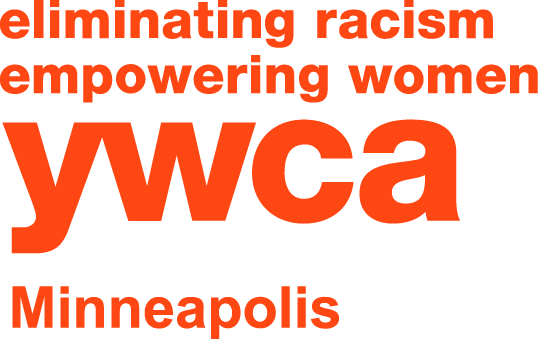Finding My Voice at YWCA
Chee was introverted as a child. When she joined her seventh grade YWCA Hmong girls group, she found her voice.
"Now I get to help my students find their voices. YWCA taught me how to get past my shyness and connect with other people. Most important of all, YWCA taught me how to be the confident woman I am today."
Chee Xiong, 24 years old, moved to North Minneapolis with her family when she was two years old. She has eight sisters and five brothers; she is number five out of 14 children.Her oldest sibling is 27 years old and her youngest sibling is eight years old. Her parents, who are originally from Thailand, moved to Eureka, California last year. “They want to live somewhere warmer after being in Minnesota for many years. Once they get settled, they will send for my three youngest siblings to go and live with them. Until then, my siblings and I all live in two houses in North Minneapolis.”

Recently Chee’s parents were in Minnesota to visit so the family had a large gathering to celebrate their time together.

In seventh grade she was recruited by her friends to join a YWCA program for Hmong girls called All That. There were about 12 girls in the group and she had never been involved with anything like that before. “We would sit in a circle and check-in, talk about our roots, current events, racism and do team-building activities. I could relate with the other Hmong girls and really loved it, so I stayed involved through eighth grade. Before joining the group I was shy and introverted. My YWCA girls group taught me how to be confident and find my voice.”Being a first generation Hmong American girl, it was hard for Chee to fit in sometimes. It was shocking to adjust to American food at school. “I could deal with a hamburger, spaghetti, and pizza but not a sloppy joe. I remember looking at the sloppy joe on my plate and thinking it was a hamburger. But then I took a bite. It was squishy and I was like, ‘Ewww. I don’t like that.’”

When Chee was in the first grade, her teacher asked the class to describe their favorite food. “I really wanted to say Hmong curry noodles. But instead, I said pizza. I didn’t want to be different.”During her freshman year at Patrick Henry high school, her little sister, Maiv Ntxhi, was having bruising on her body. Chee’s parents told the older kids, “quit being so rough with your younger sister!” “We told them we weren’t being rough.” So her parents took her sister to the doctor and found out she had Leukemia. “I was her favorite sister, so I went to her chemotherapy appointments. She passed away when she was only four years old. The next two years were extremely difficult for me, and I battled depression.”After graduating from high school, Chee went to Metro State in St. Paul and obtained her bachelor’s degree in criminal justice. After she graduated from Metro State, she enrolled in Concordia for her Master’s degree. “I wanted to become a teacher. When I was studying criminal justice, I realized I would be working with people on the wrong track in life. As a teacher, I want to help prevent young people from getting on the wrong track to begin with.”I was the first daughter in my family to get a college degree. This was a shock for my family. In the Hmong culture, boys are more favored. Girls are expected to stay home to do chores and help their moms. For me, I had goals for my life.”

In addition to attending graduate school, Chee works full-time at Hmong International Academy (HIA) as a para-professional. When her school day is done, she stays at school and works part-time as a youth counselor in the YWCA Beacon Learning Center providing afterschool programming.“The hardest part has been all of the juggling – taking care of my siblings, working one full-time job and one part-time job, and then going to classes for my Master’s degree. But I am proud because in May 2017, I graduated with my Masters of Arts in teaching K through sixth grade. It’s all worth it to be a licensed teacher, and I’m so excited to have my own classroom.”
